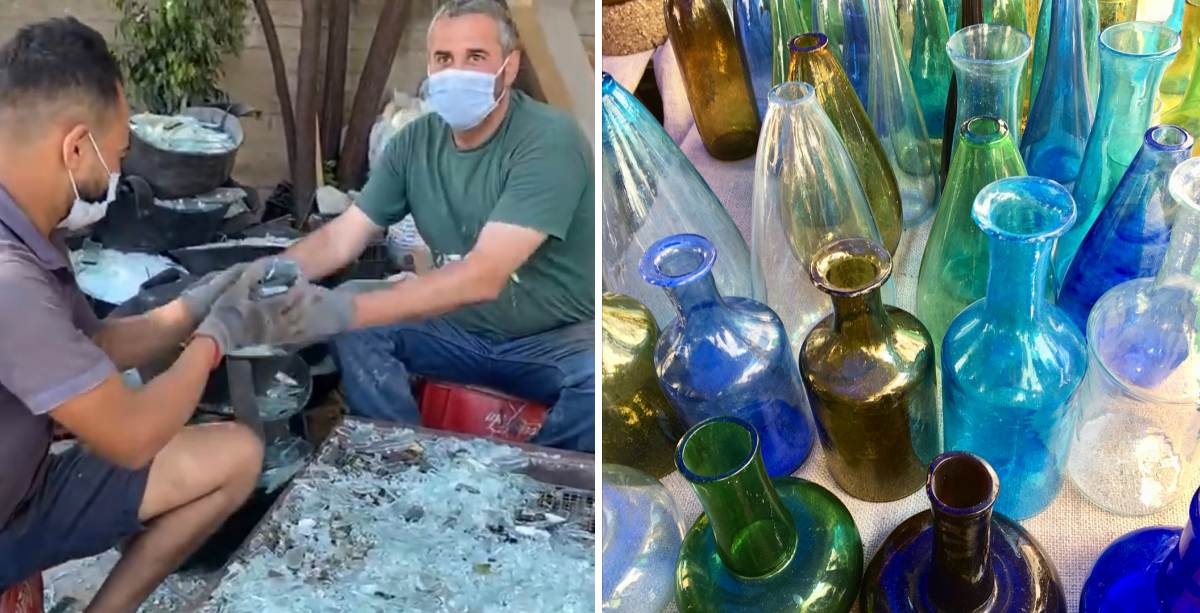Besides the buildings turning into rubbles, shattered glass was the most relevant debris seen everywhere in the destroyed areas of Beirut.
If some cemented structures were left standing, no glass resisted the blast; understandably, that was a hell of an explosion.
Many residents of Beirut spoke of “rain of glass” falling on them and about “running away on broken glass.” Among them, many weren’t spared from sharp glasses propelled in all directions.
What once was a friendly protector from wind, cold, and heat turned into a lethal danger to the people of Beirut when the hellish explosion shattered all windows and glass doors everywhere in millions of pieces.
However, these shattered pieces of glass can become friendly again, a needed friend actually, and that’s what the Lebanese people have been working to achieve.
As soon as they hit the streets of Beirut to clean up the debris, activists called on all people volunteering to save all recyclable materials, and that includes most notably the glass debris.
Among the NGOs seeking to save and sort out the debris is the Environmental Cedars that has prompted to organize and coordinate the collection of broken glass.
Since there are no window-panel factories in Lebanon to reproduce windows for the houses and buildings that lost theirs, the NGO is dispatching the loads to glass manufacturers in Tripoli in the north and Sarafand in the south.
In turn, these manufacturers, who carry the Phoenician legacy of glass art expertise, are turning the debris into beautiful and useful items, such as containers, jars, and also bottles for local businesses to use, among other products.
The NGO, headed by its founder and CEO Ziad Abi Chaker, has also teamed up with the Green Glass Recycling Initiative that pledged to buy these recycled products from the manufacturers in support.
Tripoli’s factory alone has received so far over 49 tons of broken glass from the NGO. In Sarafand, it is none other than the 2000-year old Khalife blown-glass factory that is at work, reviving tons of pieces of Beirut into admirable beauties.
Here is a fascinating look at how the factory in Tripoli is recycling the shattered glasses of Beirut into products people can buy to support the local business:
Environmental Cedars is looking for volunteers to help them with the process of collecting the glass around Beirut.
People wishing to participate in this awesome endeavor are invited to go to the base camp of Muawatin Lebnene at Mar Mikhael train station and ask for Anthony AbdelKarim.
